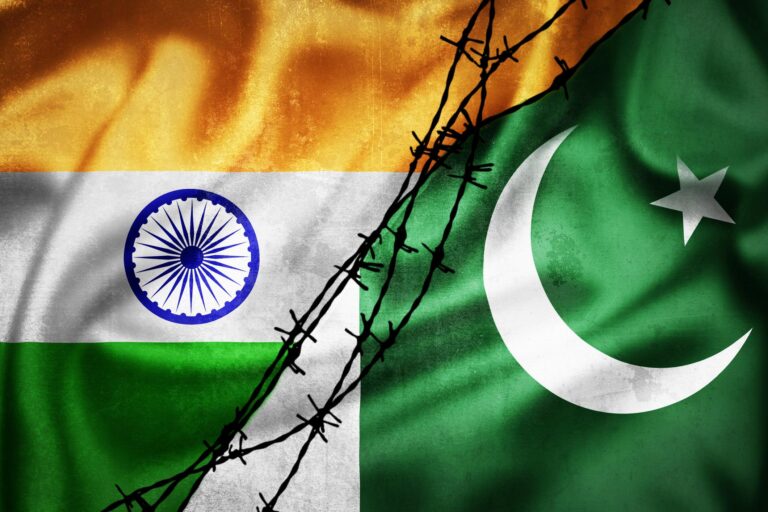India and Pakistan, two neighboring nations with a shared history yet enduring rivalry, are home to a lesser-known population often described as the “stateless sisters.” In the midst of geopolitical tensions and complex citizenship laws, many individuals-predominantly women-find themselves caught in a legal and social limbo, stripped of formal nationality and fundamental rights. This article explores the plight of these stateless women, examining how decades of political conflict and cross-border dynamics have rendered them invisible in the narratives of both countries, and what their uncertain status reveals about the broader challenges facing India and Pakistan today.
India Pakistan’s Stateless Communities and Their Struggle for Identity
In the borderlands of India and Pakistan, thousands remain trapped in a limbo where nationality and identity blur, giving rise to a stateless existence. These communities, often the forgotten casualties of Partition and subsequent conflicts, navigate a daily struggle that transcends mere legal recognition. Stateless sisters-women who carry the double burden of displacement and erasure-face systemic barriers in accessing basic rights such as education, healthcare, and employment. Their plight is intensified by overlapping bureaucracies, where neither country fully acknowledges their identity or existence under prevailing citizenship laws.
Key challenges faced by these stateless communities include:
- Denial of official documents limiting freedom of movement
- Vulnerability to exploitation and abuse due to lack of legal protection
- Inter-generational disenfranchisement, perpetuating cycles of marginalization
| Country | Estimated Stateless Population | Primary Causes |
|---|---|---|
| India | Over 200,000 | Partition aftermath, Citizenship Amendment issues |
| Pakistan | Approximately 150,000 | Ethnic conflicts, lack of documentation |
The Human Cost of Diplomatic Tensions on Cross Border Families
Behind diplomatic disputes and political rhetoric lie the deeply personal and often harrowing stories of families fractured by the India-Pakistan divide. For many, borders are not just geographical lines but barriers that sever ties between siblings, parents, and children. The story of two sisters, left stateless amidst the limbo of conflicting national policies, highlights the devastating impact of sustained diplomatic tensions. Unable to claim citizenship from either country, they endure a reality where basic rights such as education, healthcare, and employment remain inaccessible. Their plight underscores how geopolitical conflicts translate into human suffering on the ground.
Key challenges faced by cross-border families include:
- Denied legal identity and documentation.
- Restricted movement and communication.
- Psychological trauma due to prolonged separation.
- Economic instability caused by lack of citizenship rights.
| Aspect | Impact on Stateless Families |
|---|---|
| Education | Limited access to schools across borders |
| Healthcare | Restricted treatment options due to lack of documents |
| Legal Status | Absence of citizenship rights and protections |
| Psychological Impact | Chronic uncertainty and identity crisis |
Pathways to Reconciliation Solutions for Restoring Rights and Dignity
Amidst decades of conflict and political stalemates, the plight of individuals caught in limbo between India and Pakistan remains a pressing human rights concern. Addressing this crisis requires innovative and compassionate frameworks that go beyond traditional diplomacy. Empowering stateless communities through legal recognition and cross-border collaboration stands as a pivotal step towards restoring their lost rights and inherent dignity. Governments, civil society, and international bodies must prioritize:
- Robust identity documentation processes to provide official status
- Bi-national legal channels facilitating easier citizenship claims
- Community-based reconciliation programs focusing on healing and social inclusion
Concrete policy measures accompanied by grassroots action can create pathways toward resolution and reconciliation. Consider the following simplified model outlining priorities and stakeholders:
| Priority | Key Stakeholders | Expected Outcome |
|---|---|---|
| Legal Recognition & Documentation | Government Agencies, UNHCR | Granting citizenship or refugee status |
| Cross-border Family Reunification | Community Leaders, NGOs | Reconnecting families separated by borders |
| Rehabilitation & Social Integration | Local Authorities, Social Workers | Empowering communities economically and socially |
To Wrap It Up
As India and Pakistan continue to navigate their complex and often fraught relationship, the plight of the stateless sisters remains a poignant reminder of the human costs embedded within geopolitical conflicts. Straddling borders yet belonging fully to neither nation, their stories underscore the urgent need for compassionate policies and dialogue that transcend nationalistic divides. In a region where history and identity are deeply contested, addressing the challenges faced by these individuals could pave the way for greater understanding and cooperation between the two neighbours. Theirs is a story that demands attention-not just as a footnote to bilateral tensions, but as a human narrative deserving recognition and resolution.




